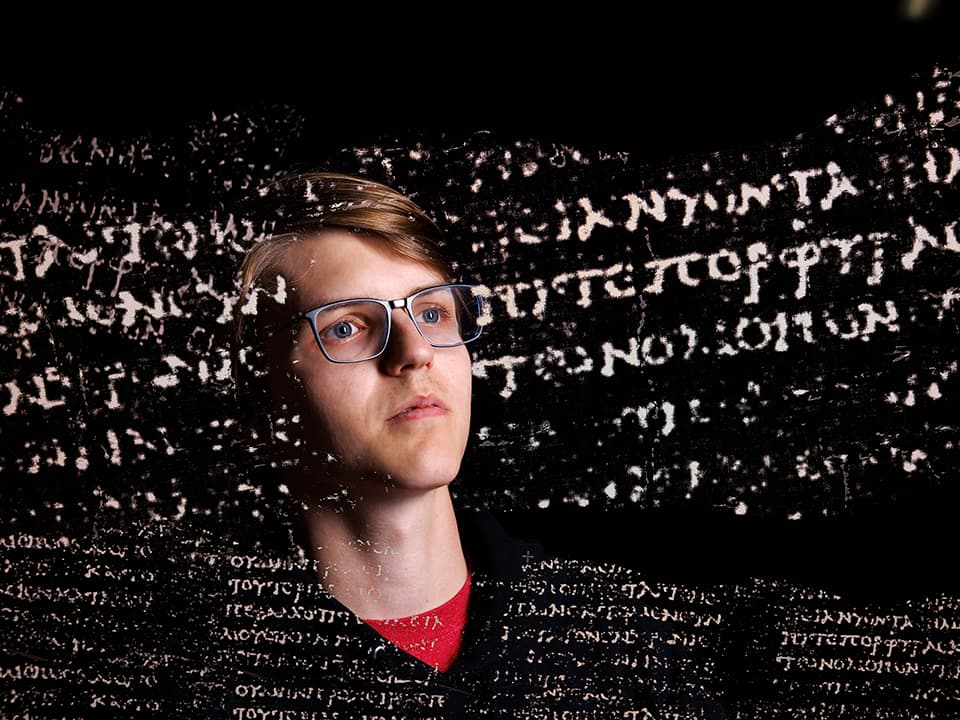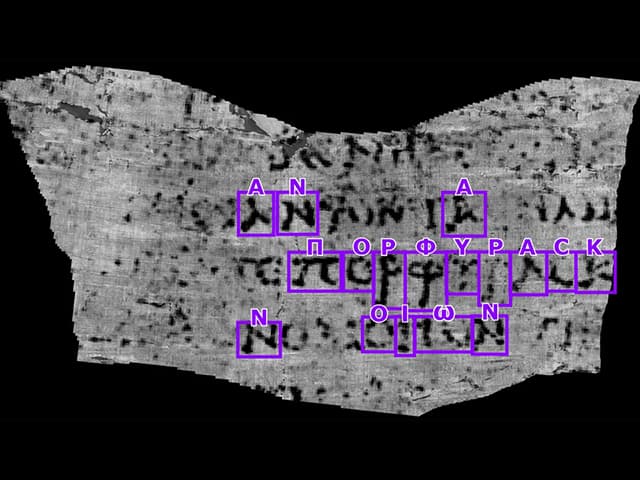Husker Undergrad Decodes Ancient Scroll, Wins Global Competition

In February 2024, the Vesuvius Challenge named Nebraska senior Luke Farritor as one of three co-winners of its $700,000 Grand Prize for digitally deciphering at least four passages of a 2,000-year-old Greek scroll.
In late 2023, Nebraska’s Luke Farritor became the first to decode a Greek word from a papyrus scroll charred into a lump of carbon by the eruption of Mount Vesuvius nearly 2,000 years ago.
A student in the Jeffrey S. Raikes School of Computer Science and Management, Farritor used machine learning models to separate the carbonized ink from the carbonized paper, eventually revealing the Greek word for “purple.”
That feat would earn Farritor worldwide acclaim and $40,000 from the organizers of the Vesuvius Challenge, a global effort to decode the writings of burnt scrolls recovered from a library in the Roman town of Herculaneum. For most, it would rank as the achievement of a lifetime.
But the Husker undergrad and Lincoln native was far from finished, continuing his work to decode entire passages that qualified him for the Vesuvius Challenge’s Grand Prize.

“Sometimes we take breakthroughs such as this for granted, but we should not,” said Farritor. “It took the combined efforts of many people over several centuries to discover, preserve, scan and now, finally, read and translate these scrolls. It is the privilege of a lifetime to be a small part of this.”
Though the text revealed by the team is still being transcribed and translated, an early read suggests that it is a philosophical treatise on pleasure, akin to what the organizers called “a 2,000-year-old blog post about how to enjoy life.”
The preliminary analysis has also confirmed that the text was never duplicated, meaning that it has gone unread since at least A.D. 79, when Mount Vesuvius drowned the surrounding area in ash and volcanic mud.
Until, of course, this Husker student unlocked its long-lost passages.
More Reading on Luke Farritor
- Farritor named co-winner of $700,000 prize for ID’ing scroll passages
- Undergrad’s scroll-decoding discovery grabs worldwide headlines
- Husker is first to decode word on ancient scroll